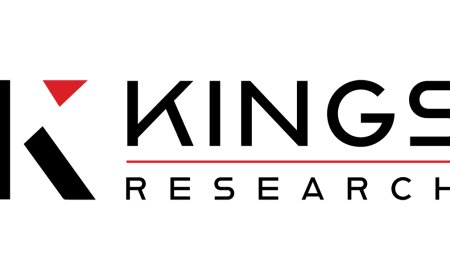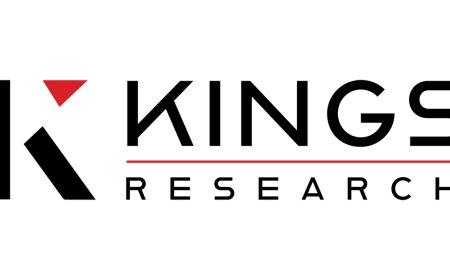How Microsoft Solutions Partners Optimize Dynamics 365 for Complex Supply Chain Environments
Let’s explore how Microsoft Solutions Partners play a pivotal role in optimizing Dynamics 365 for end-to-end supply chain success.

Introduction
In todays volatile and interconnected global economy, managing a complex supply chain is no small feat. From raw material procurement to distribution and reverse logistics, modern supply chains face rising challenges such as unpredictable demand, multi-tier supplier networks, regulatory compliance, and geopolitical disruptions. Amid this complexity, organizations turn to technology to streamline operations, enhance visibility, and respond to change swiftly. At the heart of this transformation lies Microsoft Dynamics 365, a robust ERP and CRM platformand guiding that transformation are expert Microsoft Solutions Partners.
These certified partners bring deep industry knowledge, technical prowess, and strategic insight to tailor Dynamics 365 to the unique needs of complex supply chain environments. Lets explore how Microsoft Solutions Partners play a pivotal role in optimizing Dynamics 365 for end-to-end supply chain success.
Understanding Supply Chain Complexity
Before diving into the optimization strategies, its essential to define what constitutes a complex supply chain:
-
Global Distribution: Multiple distribution centers across continents.
-
Multi-Modal Logistics: Integration of land, air, and sea freight.
-
Tiered Supplier Networks: Several layers of vendors and subcontractors.
-
Regulatory Compliance: Industry-specific regulations across jurisdictions.
-
Demand Volatility: Fluctuating customer requirements or seasonality.
-
Just-In-Time Requirements: Lean inventory with high dependency on timely delivery.
Such environments require more than an off-the-shelf ERP deployment. They demand tailored configurations, integration with third-party logistics systems, and advanced analytics. This is where a Microsoft Solutions Partner becomes invaluable.
Tailoring Dynamics 365 to Industry-Specific Supply Chain Needs
One of the key advantages of working with a Microsoft Solutions Partner is their ability to customize Dynamics 365 moduleslike Supply Chain Management, Finance, Commerce, and Customer Serviceto align with the specific operational workflows of an organization.
For example, a partner working with an aerospace manufacturer might configure Dynamics 365 to track every part through serialized inventory management and stringent quality controls. Meanwhile, for a fast-moving consumer goods (FMCG) company, the focus might be on high-volume demand forecasting and warehouse automation.
By using industry-specific templates and accelerators, Microsoft Solutions Partners can speed up implementation while ensuring adherence to best practices in sectors like automotive, pharmaceuticals, and food logistics.
Enhancing End-to-End Visibility
Supply chain leaders today crave real-time insights across their ecosystem. Microsoft Dynamics 365, when implemented and optimized by an experienced Microsoft Solutions Partner, offers advanced features like:
-
Supply Chain Insights: Real-time dashboards and predictive analytics.
-
Inventory Visibility: Unified data across warehouses, in-transit goods, and vendor locations.
-
Vendor Collaboration Portals: Seamless coordination with third-party suppliers.
Partners integrate Dynamics 365 with IoT-enabled devices and RFID tags to enhance data collection, enabling proactive risk identificationsuch as predicting stock-outs before they happen or rerouting shipments due to weather disruptions.
Additionally, Microsoft Solutions Partners can extend Dynamics 365 through Power BI, creating custom dashboards that give operations managers a granular view of the entire supply chain, right from procurement to customer delivery.
Advanced Automation & Workflow Optimization
Modern supply chains must operate at high speed without compromising accuracy. Microsoft Dynamics 365 includes capabilities like robotic process automation (RPA), AI-driven suggestions, and rule-based workflows. A Microsoft Solutions Partner can unlock these features by:
-
Configuring automated approval processes for vendor invoices or purchase orders.
-
Setting up intelligent forecasting based on historical and market data.
-
Enabling automated replenishment based on consumption patterns and safety stock levels.
These automated processes reduce human error, save time, and free up supply chain teams to focus on strategic initiatives rather than repetitive tasks.
Integration with Legacy and Third-Party Systems
No supply chain runs in a vacuum. Companies often rely on various systems like WMS (Warehouse Management Systems), TMS (Transportation Management Systems), or MES (Manufacturing Execution Systems). Integrating these with Dynamics 365 is critical for real-time coordination.
Microsoft Solutions Partners possess integration expertise using:
-
Azure Integration Services (Logic Apps, API Management)
-
Power Platform (Power Automate for low-code integration)
-
Custom APIs and Middleware
They can seamlessly connect Dynamics 365 to external logistics providers (e.g., FedEx, Maersk), barcode scanning systems, and production floor automationcreating a unified digital ecosystem that eliminates silos and promotes data-driven decision-making.
Scaling Supply Chain Operations with Cloud and AI
Supply chain operations often scale up or down based on business cycles. Dynamics 365, being cloud-native, offers the scalability to handle such fluctuations. A certified Microsoft Solutions Partner ensures that the cloud architecture is designed to support spikes in transaction volume, cross-border operations, and multiple languages or currencies.
Additionally, Microsofts AI featuressuch as demand forecasting, lead time prediction, and sentiment analysisare not always plug-and-play. Microsoft Solutions Partners help configure these models based on company-specific datasets, ensuring accurate predictions and tangible ROI.
Supporting Compliance and Sustainability
With growing emphasis on ESG (Environmental, Social, and Governance) compliance, supply chains must now track their sustainability metrics. Microsoft Dynamics 365 and the Microsoft Cloud for Sustainability provide tools to monitor carbon footprints, ethical sourcing, and compliance.
Microsoft Solutions Partners enable:
-
Integration of ESG metrics into supply chain workflows.
-
Configuration of audit-ready reports aligned with global standards.
-
Visibility into supplier sustainability practices using Microsofts AI-driven insights.
This proactive approach helps companies not only meet regulatory requirements but also win stakeholder trust.
Continuous Improvement and Support
Supply chains evolve rapidly. A one-time ERP implementation is no longer sufficient. Microsoft Solutions Partners provide ongoing support, performance tuning, and roadmap planning to align the ERP system with evolving business strategies.
They often offer:
-
Quarterly optimization assessments
-
Change management support
-
User training and adoption workshops
-
Co-innovation labs to test new features and workflows
This ensures that Dynamics 365 remains a living, evolving platformsupporting innovation while staying aligned with business goals.
Real-World Example: Optimizing a Global Electronics Supply Chain
Consider a global electronics company that sources components from Asia, assembles in Europe, and distributes across North America. Faced with fluctuating demand and geopolitical risks, they engaged a Microsoft Solutions Partner to optimize their Dynamics 365 deployment.
The partner delivered:
-
A centralized supply chain control tower powered by Dynamics 365 and Power BI
-
IoT integration with container sensors for real-time tracking
-
Automated procurement workflows tied to forecast demand
-
Predictive analytics to reduce lead times and avoid delays
The result? A 15% reduction in inventory costs, 22% improvement in order fulfillment, and enhanced resilience during global disruptions.
Final Thoughts
Managing a complex supply chain in todays digital age requires more than a robust ERP platformit demands deep expertise, strategic foresight, and seamless technology integration. A Microsoft Solutions Partner brings all these elements together, ensuring that Dynamics 365 not only supports day-to-day operations but also drives innovation and competitive advantage.
By aligning Microsofts technology with your specific supply chain requirements, these partners turn challenges into opportunitiesmaking your supply chain smarter, faster, and future-ready.
































